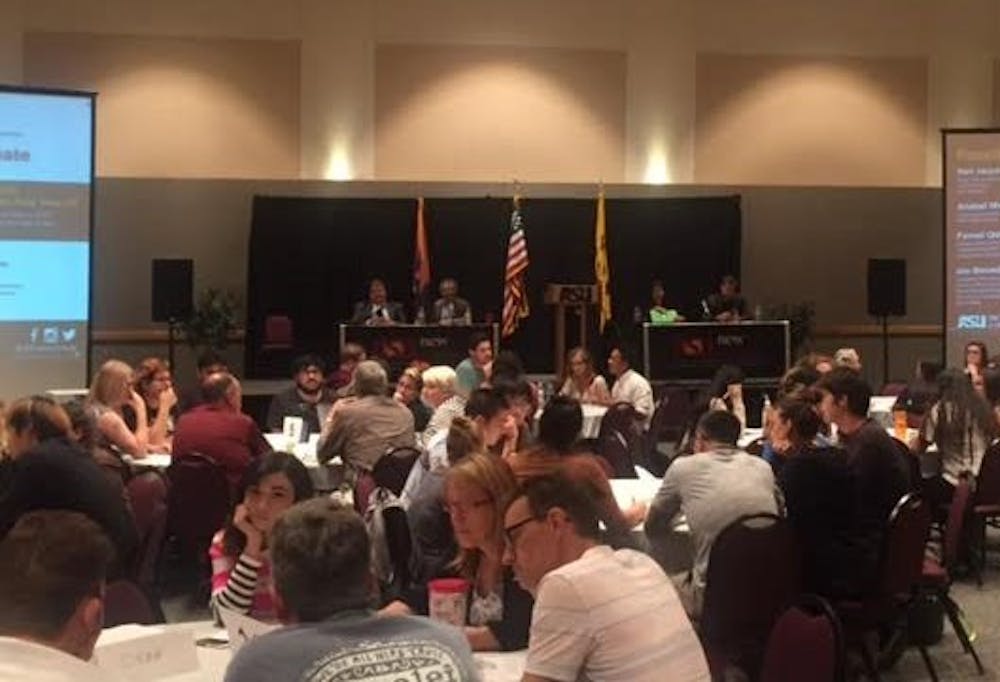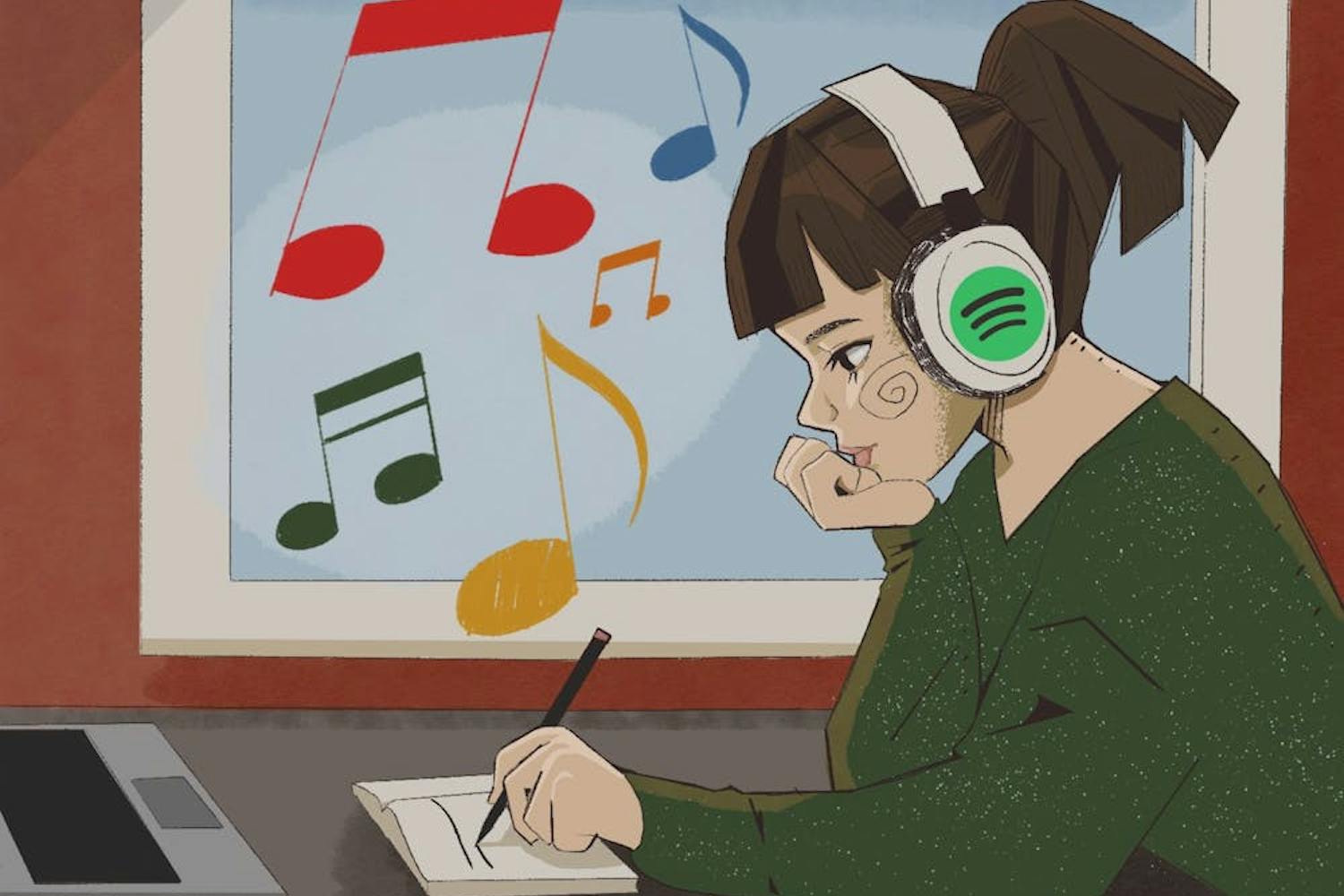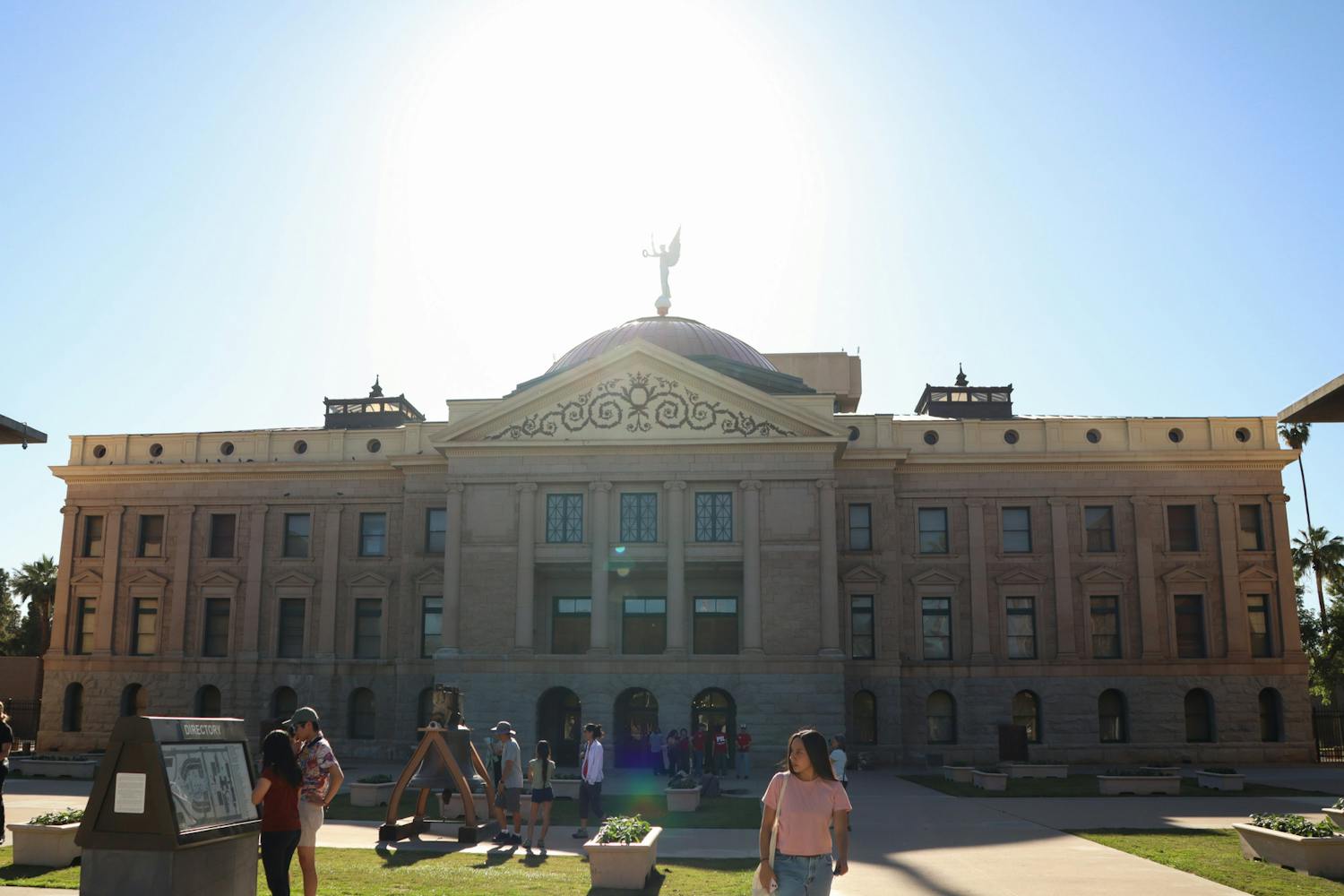Although Arizona's minimum wage has been higher than the federal rate for the past five years, voters will have the opportunity to raise it yet again with Prop. 206 on the November ballot.
If passed, the proposition, The Fair Wages and Healthy Family Initiative, would raise minimum wage from $8.05 an hour to $10 an hour by 2017 and increase incrementally to $12 an hour by 2020. The proposition also establishes the right to earn paid sick time for full and part-time employees.
A town hall on ASU's West campus voted they would pass The Fair Wages and Healthy Family Initiative based on information provided from panelist arguments for or against Proposition 206.
The town hall debate was presented by The School of Social & Behavioral Sciences on Tuesday night in the La Sala Ballroom.
Ken Jacobs, chair of the UC Berkeley Labor Center, argued for the proposition along with panelist Anabel Maldonado, a community organizer.
Jacobs argued the benefits of raising the minimum wage outweigh the costs, with an estimated 780,000 workers in Arizona who would receive increases from the initiative.
“The current minimum wage of $8.05 in Arizona is well below what is needed for a full-time worker to reach self-sufficiency,” Jacobs said. “These people rely on public assistance to make ends meet.”
Despite these benefits, it was pointed out that raising minimum wage could hurt small businesses and reduce the number of available jobs.
Panelist Farrell Quinlan, Arizona state director of the National Federation of Independent Business, said lowering the minimum wage could increase jobs because businesses would be willing to take a chance on increasing employees.
“These aren’t people with high skills and a lot of work history,” Quinlan said. “The vast majority of those that are on minimum wage are working their first job.”
Jim Rounds, president of Rounds Consulting, argued against the proposition and said an individual shouldn’t be trying to raise a family on minimum wage.
“I don’t think that just raising the minimum wage is what helps a family long-term,” Rounds said.
Rounds suggests improving workforce development programs so minimum wage workers can “work their way up the income ladder, rather than just relying on an artificial government level.”
After the four panelists presented their case on the issue, each table was asked to discuss the matter and come up with questions for the panelists.
After the town hall session, attendees were asked to vote on their mobile phones which statements they thought best informed voters. All of Jacobs' statements came in first place.
Attendees were then asked how they would vote in November on Proposition 206. Over 70 percent of attendees said they would support raising minimum wage in Arizona.
Elise Poll, a graduate student in the communications program at ASU, led the discussion at her table as a moderator.
“Before this debate, I was pretty neutral because I felt like I didn’t know enough information or statistics,” Poll said. “After hearing the debate and seeing how different panelists acted, I would vote yes.”
Kevin Kobey, a student majoring in psychosocial rehabilitation at ASU, said he’s still not sure how he would vote on the proposition.
“I would have to go out and investigate more, they didn’t have enough to sway me,” he said.
Reach the reporter at jwbowlin@asu.edu or follow @taylor_bishop6 on Twitter.
Like The State Press on Facebook and follow @statepress on Twitter.




